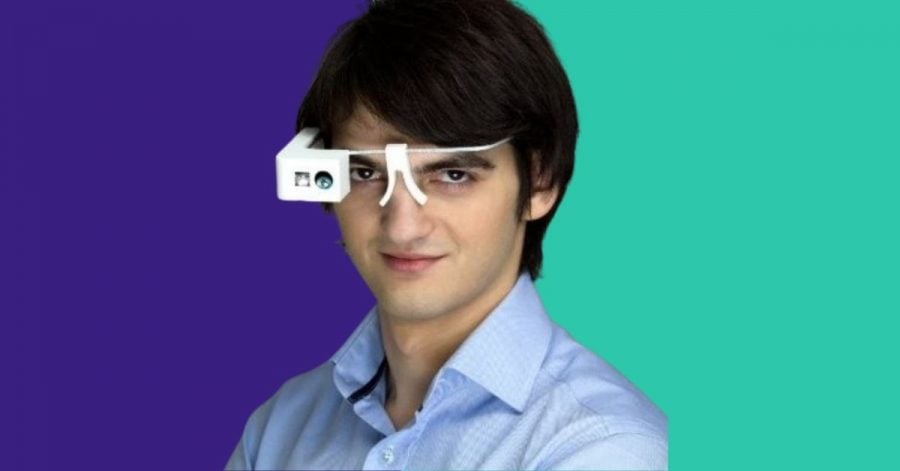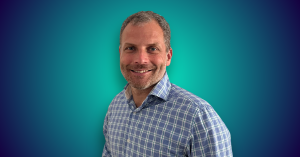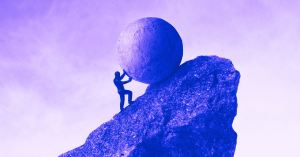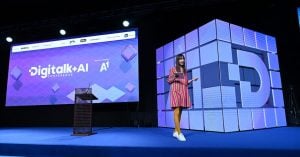.lumen is a Cluj-based startup that was first launched in 2018 as a research project with only nine members. Two years later, the team has grown to 40 members and announced the details of their AI and robotics system, which can aid blind people with their mobility. They also attracted over $1M in investment rounds. This year they aim to launch the production, develop their team, and expand globally.
The Cluj-based startup was on our radar from the beginning of the year. Cornel Amariei has a background in cargo gamma-ray scanning robotics, ATM security systems, and has been working with Arduino since 2007. He is the first Romanian to receiving the “Ten Outstanding Young Persons of the World” award in 2018, amongst others.
“Ten years ago, I received my first gold medal in an international Olympiad, which was in Turkmenistan. When I got back to Bucharest, my parents were waiting for me. I got into the car and asked my father if we could stop at a fast-food restaurant. The answer was no, we could not afford it. That was the moment I realized how much you can do in ten years,” shares Amariei a glimpse of where his inspiration lies.
“I’ve always been inspired by people with a clear vision, who don’t give up until they reach the proposed objectives, no matter how hard the road may be or how many efforts it takes,” Mihai Ivascu, Executive Chairman at .lumen, shares in a previous interview for The Recursive.
Today, The Recursive met with Cornel Amariei, founder and CEO of .lumen, to discover more about the inspiration for wanting to change the world, one AI gadget at a time, and what challenges is the startup facing.
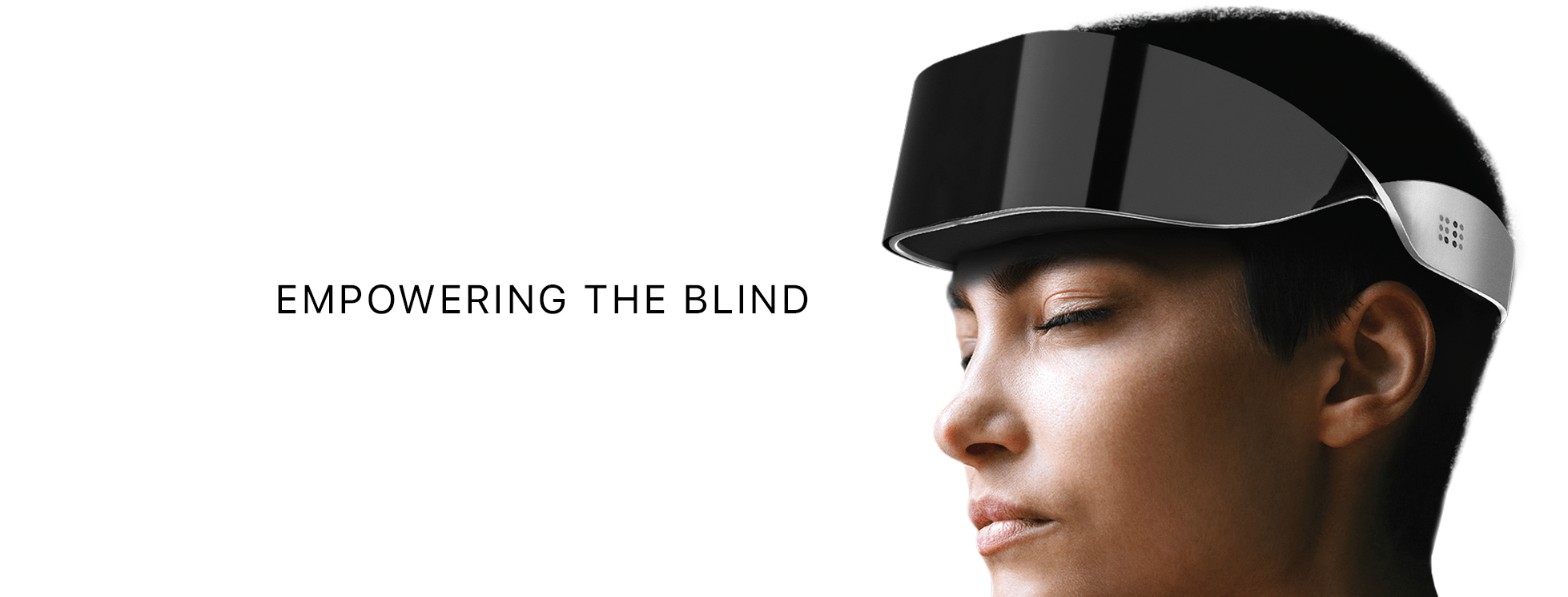
What is the first problem you solved through innovation?
I have two in mind: the first one was when I was in the eighth grade in 2007. There were some burglars in the village I was living in. So, I created a system, “SecureIT” was the name. I used a webcam’s standard microphone, and with an old computer’s system, it understood movement and triggered the alarm.
The system was able to distinguish between normal and abnormal movement. You could say this was artificial intelligence back then, but I didn’t know about it; I was only 14. My system was able to detect many things and understand sounds related to the breaking of glass, not by machine learning, but by some classical algorithms.
The second thing was a year later. I picked up web designing, and I had to make money before building the things I loved. It wasn’t a novelty. Other people were doing it back then, but I was 14 and lying about my age so that I could get contracts.
There was an engineering challenge in Romania – a company wanted to expand and have their own line of electronic boards for people to learn quicker about electronics. The problem was that they were expensive to build and it took a long time. You had to order them somewhere, like in China, and then you waited a month and a half for it.
But we knew how to build the machine. I was in the ninth grade, and with a colleague, who was in the second year of university, we began building a CNC PCB prototyping machine. We were never paid for it, but we did it because we just loved the subject.
I’m becoming that old, bittersweet guy who would say that now is just so easy to do these things because it was so difficult to build back then. I am happy these things are easy because it means that the complicated things push the world a bit forward.
Where is this drive coming from?
I was born in a family of limited possibilities, where both of my parents have locomotor disabilities, and my sister has cerebral disabilities. At the same time, I lived in a family where my parents worked 14 hours a day, weekends included, to take care of my sister and me. That’s where my ambition and determination come from.
It’s a simple idea: you have to work, stay on the floating line, and combine it with the love of doing things that are not common. It took me 20 plus years to realize that I’m doing the right things.
Furthermore, it was hard growing up, doing things that nobody was doing, but everyone was bullying you for it. One of the biggest wins is the fact that despite all the criticism until high school, which was a turning point in my life, they were all wrong. I could have done everything and had the approval of others by knowing how to influence people, but I learned that a bit later.
Do you understand the value of working in a team better now?
In the last few years, I had the privilege of meeting a lot of amazing people. There was an HR manager from Romania that told me an interesting metaphor. As an HR manager, she drives a bus. On the bus there are people and from time to time she has to kick some off, while others have to come in. But at some time, you must make sure you are driving the right bus. You must make sure the right people surround you, if not, make a change.
You rarely have the opportunity to select and change people in a corporation, because of corporate laws.
It is one of the things which I learned in various endeavors, but most of them I learned here. And I learned it in the last year and a half since the pandemic. .lumen has grown so much; we’ve transformed into the fastest growing Romanian startup at this stage. It’s proof that by having the right people, you can do extraordinary things. It’s amazing what normal people are capable of given this right context.
What inspired the .lumen solution?
Growing up in an environment where I was the only person without a disability made me realize how important assistive technology is for people with disabilities and how very few things are being done.
The idea of .lumen appeared in 2013. I discussed it at university with a friend, and we got to the expression “glasses for the blind”. We began researching and found a problem: there were 40M blind people, and increasing to 100M by 2050, but there were only 20K+ guide dogs.
We began building but soon realized the technology was not there. We took it upon us that the moment we find the technology catching up, we would do it. In 2019 there were the first signs that this might be possible. In 2020 this sort of became possible and now, in 2021, we are working on it. We have built the glasses and tested them on 200 people. We are closing our Series A round very soon, rolling as fast as possible.
The feedback we are getting from our blind users is incredible, to give an example: “I believed something like this would exist, but not in our lifetime.” All the eureka moments happen during everyday work. We don’t even realize doing it. Every minute we spend we have only one purpose: to help. There are very few opportunities to work on something that changes the world.
What do you aim to do with .lumen?
One of the things which we learned from .lumen is to make meaning, not money. It means defining the problem, understanding it, and coming up with a solution that only helps. That’s the reason we started .lumen.
I want to help because I know that there’s not enough done. I have seen how much this is impacting. I think Bill Gates had a saying that if you see a problem that you know you can create a solution for, you become obliged to do it.
Are you ready to get to market in the second half of 2021?
There are a few delays due to the COVID pandemic. There is an electronic crisis in the world that no one has seen before. We have team members who have been working for 30 years in electronics. It’s one thing manufacturing in large quantities, but we cannot even prototype. It’s difficult to plan, but, yes, we are beginning to manufacture a large batch soon.
Then, next year we are doing a global expansion. By the plan, it’s feasible that we can change a thousand-year-old paradigm in the following 1-2 years. Considering guide dogs have been around for some time, and today we only have under 30K guide dogs worldwide, it is amazing that we might be able to do more than 20K units next year.
What does a research startup mean?
Doing something that nobody has ever done. We are years ahead of anyone who wants to try to start today. Regardless of how big or small they are, they have to play catch up for three years. I’m a fan of Guy Kawasaki, and he had this saying: “big challenges beget the best work”.
At .lumen, we created a context to innovate using autonomous driving and robotics technology. We created a hypothesis, a test system, the procedures, and then we tested. The procedures we write mean a huge amount of work, for every hour of testing, we have over 100 pages of procedures to be respected. When we are doing tests with people, we record everything they’re doing 200 times a second. So, for a two-hour test, we have hundreds of gigabytes of information saved.
What challenges are you facing with this project?
Time is the biggest challenge we have as a startup. We don’t have the resources to take our time. We must cut corners to move fast and deliver, because as big as we are, as much money we are spending, I must make sure we are still here one year from today. We will be here, no problem about that, the last month convinced me that we can do anything. .lumen is too big to fail.
Production is a challenge, where we don’t have a choice. But let’s look at Product Market Fit, where startups get it wrong. We are well suited for this. Making it work around the world is still a challenge: you have to build a device that guides blind individuals at +40C in Dubai and at -20C in Norway.
What thoughts do you access mentally when you need a confidence boost or inspiration?
I’m a motivational speaker, I do a lot of speeches, and I love doing them because it inspires people. Once people ask me how to get my ambition or motivation, that’s the only thing which I don’t know how to get.
I love creating things and I’m very ambitious because I grew up in a family where ambition was what kept the family alive. When you see that at two years old, it stays with you for a while. But I love that when you create something and it works, people smile. I hope I will have the opportunity to do it in the following years, to create a lot of smiles. This idea is what keeps me alive.
Of course, I get discouraged, I can’t always be a rock, even if I have to for the people I lead. I do remember the things which I was able to do in the past, like where I come from, and that it was harder than this, but we managed to get over it. I think that’s what keeps me sane. Not that I am very sane. I mean, no one should work as much as I do, and no one should work as much as all of us do at .lumen.
I do not know life without work, or remember any time when I was not 101% dedicated. But that’s me, I don’t think everyone can do it. I don’t think everyone should.

